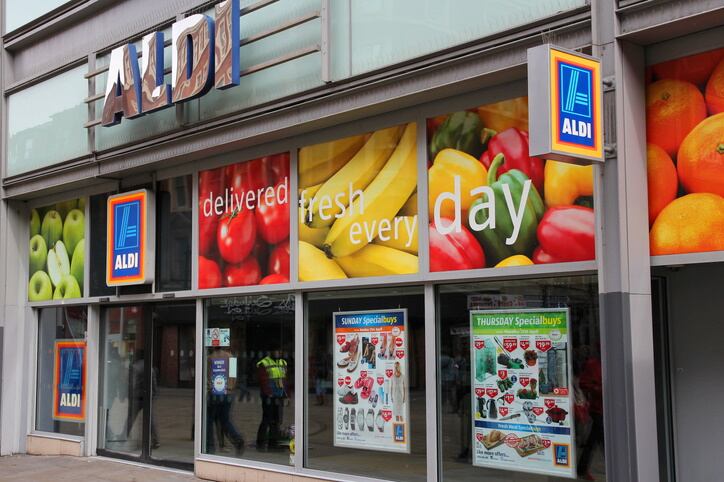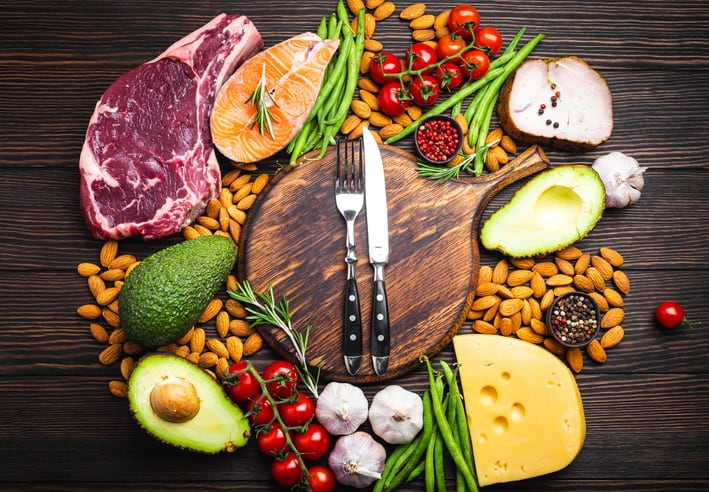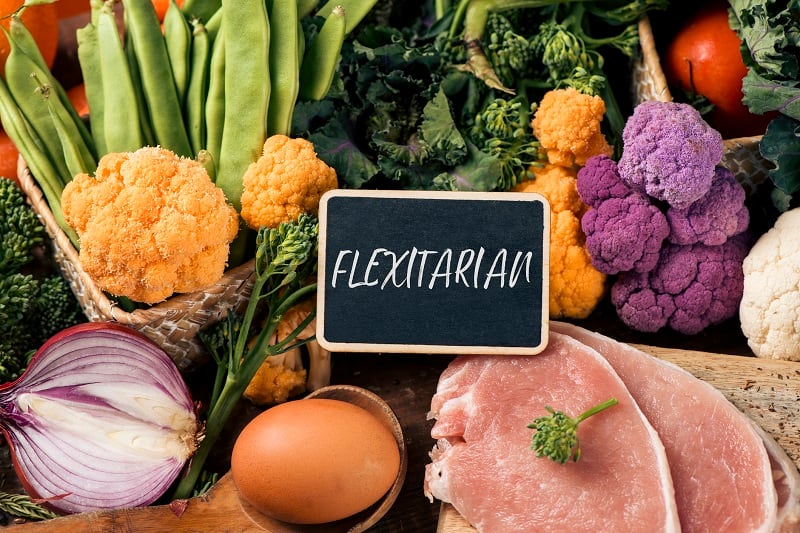A pan-European survey conducted by NGO ProVeg International in partnership with Innova Market Insights, the University of Copenhagen, and Ghent University, has shown a ‘significant shift towards plant-based eating’ taking place across the continent.
The survey of 7,500 people across ten European countries – part of the EU-funded Smart Protein project – found 7% of respondents followed plant-based diets, while 30% of people were flexitarian eaters. “Flexitarians are the most important target group from a business perspective,” according to ProVeg consumer research scientist Dr Kai Brit Bechtold.
Speaking at an event to discuss the research findings, she explained that appealing to flexitarian consumers offers food makers ‘enormous’ potential to grow sales of plant-based products.
With 46% of Europeans reporting that they eat less meat today than they did at this time last year, Dr Bechtold believes this represents a long-term trend. Looking specifically at the responses of flexitarians, 73% said they have substantially reduced their meat consumption – while data from NPG Group suggests 90% of plant-based consumers are meat eaters. “This illustrates the transition from animal-based to plant-based is largely driven by flexitarians,” Dr Bechtold suggested.

The importance of flexitarians to food sector development was underlined by German poultry-to-plant-based manufacturer PHW Group. “Clearly, there is a long-term consumer trend of including vegan protein in the regular diet,” PHW board member Marcus Keitzer noted. “One thing we do know for sure: Neither meat products alone nor currently available alternative protein options are going to be able to sustainably meet the protein requirements of future generations on their own. A holistic protein platform strategy is needed, which includes ecologically optimized meat production as well as a visionary approach in the field of alternative proteins. Therefore our business unit "alternative proteins" was founded in 2018 and we are working constantly to offer the best and sustainable protein mix of the future.”
Plant-based demand acceleration
Looking to the future, ProVeg predicted the trend towards plant-based will continue to gain momentum with almost 40% of people reporting they plan to cut their meat consumption further still. “Europeans will continue to reduce meat consumption,” Dr Bechtold told her audience. “Europeans also plan to reduce their dairy consumption.”
“European consumers' appetite for plant-based foods is here to stay, as shown by the number of Europeans who say they want to eat more plant-based alternatives to dairy and meat in the future,” agreed Vinciane Patelou, Director, ENSA-European Plant-based Foods Association.
Importantly, the ProVeg consumer research expert noted, this is a trend that is evident across all European markets included in the survey, not just those that have come to be closely associated with plant-based uptake. “It’s not only happening in countries like Germany, the Netherlands, Spain and the UK. It is also happening in countries like Poland and Romania.”
If food manufacturers and retailers are to take advantage of this mounting interest in plant-based eating, a good place to start is understanding the needs and drivers of flexitarian consumers.
What flexitarians want
Examining the categories that hold the greatest appeal to flexitarian shoppers, ProVeg reported 53% of European citizens indicated they have a ‘strong likelihood’ of eating plant-based meat. 38% similarly said there was a ‘strong likelihood’ of them opting for plant-based cheese.
“The plant-based meat sector is far more mature than plant-based dairy, which is till in its infancy,” Dr Bechtold observed. However, plant-based milk is ‘by far’ the most consumed product by flexitarians, followed by plant-based yoghurt and plant-based beef. The researchers added that there is a strong innovation opportunity to develop baked goods that are free from animal derived ingredients.
Within the plant-based meat space, whole cuts like chicken breast and steak are ‘urgently needed’ and would signal a ‘new era’ of plant-based consumption, Dr Bechtold claimed. She also sees an innovation white-space around plant-based seafood products, which she said offer a ‘huge opportunity for the food industry’ with strong demand for plant-based salmon, tuna and white fish. In dairy alternatives, survey data highlighted a desire for more plant-based cheeses, especially mozzarella and sliced cheeses.

Professor Armando Perez-Cueto of the University of Copenhagen - one of the Smart Protein collaborators - told FoodNavigator that ‘market penetration for plant-based foods is still in early stages, hence there is a potential for growth’.
With not even half of people reporting that they comply with recommendations for fruit and vegetable consumption, Professor Perez-Cueto believes there is ‘still work to be done for a full dietary shift’.
However, as plant-based products become more commonplace, this is likely to open up more innovation opportunities to develop fresh consumer-centric approaches to innovation. “As more mainstream consumers jump in the plant-based boat, there will be more demand for pulses, vegetables and fruits as they become the centrepiece of the dishes. As people experience the diversity of textures and flavours that can be obtained with pulses, vegetables and fruits, they will overcome the ‘taste barrier’,” the Professor predicted.
"The main player in food choice remains taste. The next generation of [plant-based] foods should be tasty and provide a nice sensory overall experience."

Another of the ‘main barriers’ to increased plant-based consumption, according to Dr Bechtold, is availability. “More plant-based food is needed in restaurants, supermarkets and so on,” she said, noting that 45% of flexitarians say there is not enough choice and availability.
In particular, given the importance that the discount channel has in the European retail scene, she claimed industry needs to step up its efforts to diversify distribution into this sector. Specialty stores, butchers and bakeries, would also benefit from offering greater plant-based choice.
According to German discounter Aldi Nord, the plant-based category is one that is certainly on the retailer's radar. “The survey underlines one of the key trends of our time and confirms us in defining plant-based foods as a relevant topic for Aldi Nord," said Christoph Georgius, Business Unit Director Corporate Responsibility and Quality Assurance International. "Our aim is to make plant-based food easily available and affordable for everyone. We are committed to our customers' wishes and thus constantly expanding and optimising our plant-based product range. By labelling relevant food products with the V-Label we make shopping as easy as possible for our customers.“

Other important purchase drivers were freshness, no additives and price, survey respondents reported, with 50% of people saying plant-based alternatives are too expensive compared to conventional counterparts.
Dr Bechtold said clean label is 'increasingly of concern' for consumers 'especially when it comes to plant-based meat' which can have long and unrecognisable ingredient lists. Ultimately, she continued, uptake comes back to two key deliverables. “For flexitarians it is all about taste and health. If a product doesn’t taste good, they won’t buy it again."
Dr Bechtold believes industry has made progress on these two crucial metrics. “Products are getting better and better,” the ProVeg expert claimed. “Sure, taste and texture are still issues… But in comparison to last year’s survey these factors improved.”




